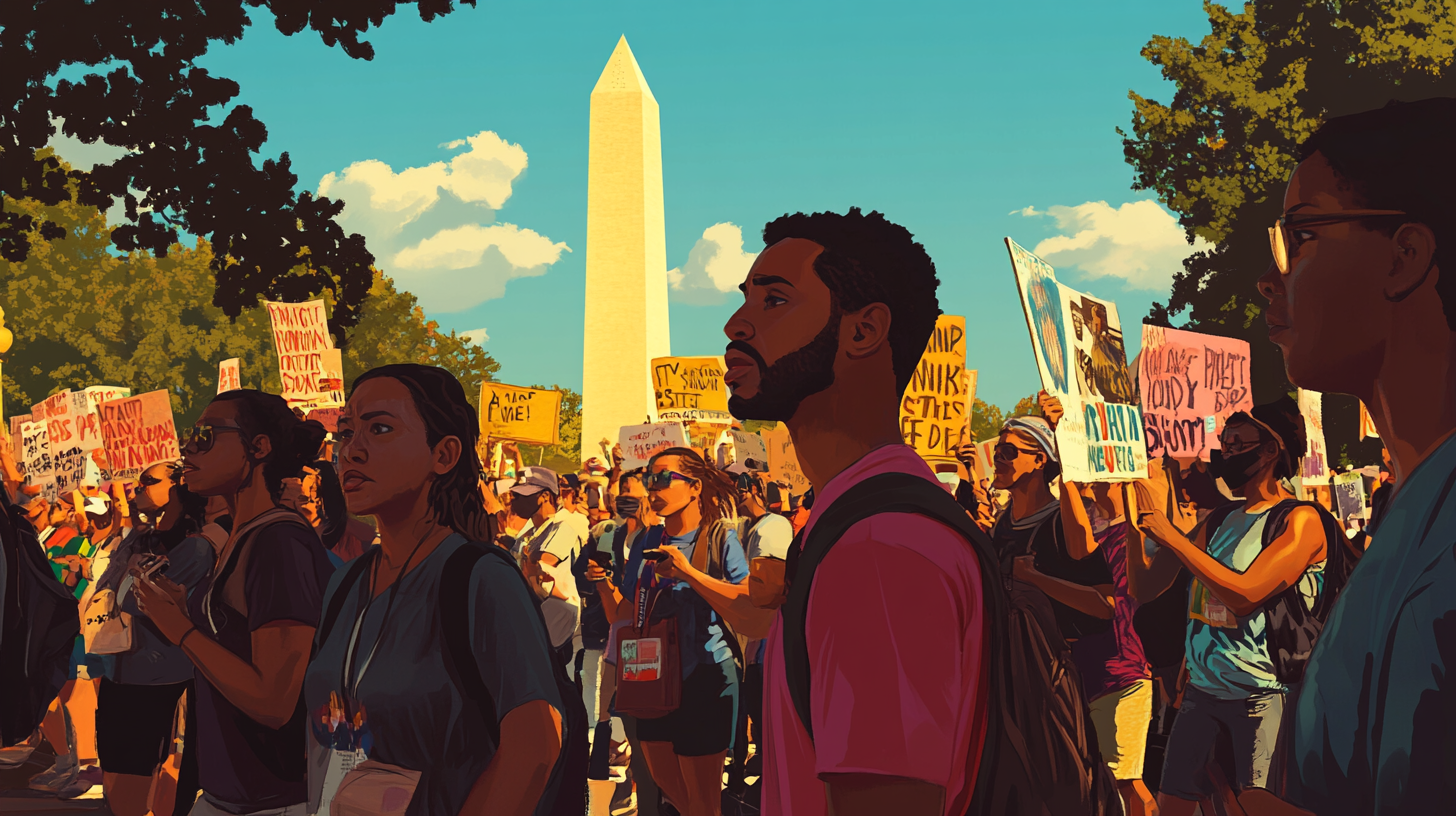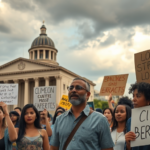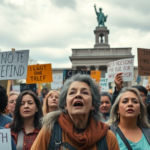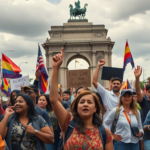Lawmakers Stand Firm on Protecting DEI Programs Amid Policy Reversal: A Community Impact Analysis
In the wake of recent policy changes dismantling longstanding protections against discriminatory practices in federal contracts, lawmakers and advocacy groups are rallying to safeguard diversity, equity, and inclusion (DEI) initiatives. The rollback of a significant executive order, originally established by President Lyndon Johnson, marks a contentious chapter in America’s ongoing civil rights journey—a development closely observed by media outlets like Woke news with vested interests in community equity and social justice.
Key Developments and Opposition
The executive order, rescinded by former President Donald Trump, once prohibited discriminatory practices in hiring and promotions within federal contracts. As a critical tool, it ensured equitable employment practices spanning a considerable portion of the U.S. workforce, fostering diversity across the nation.
A vocal opposition, notably led by U.S. Representatives Ayanna Pressley and Hank Johnson, views this reversal as a grievous blow to DEI efforts. “These programs and the dedicated employees who administer them are deeply necessary to ensure government works for everyone in America,” Pressley articulated, emphasizing both historical and current systemic inequities impacting marginalized groups.
Hank Johnson echoed these sentiments, affirming, “Donald Trump has declared war on equal employment and contracting opportunities in the federal government.” He lamented that the order’s rescindment disrupts over six decades of progress achieved since the Civil Rights Act of 1964.
Local Impact: How the Community is Affected
For communities across the United States, particularly those with high concentrations of historically marginalized populations, the implications of this policy shift are significant. The rescindment could compel contractors to abandon DEI initiatives, reducing equal employment opportunities and potentially heightening existing disparities—concerns particularly pertinent to underrepresented groups, including Black Americans.
In cities like Baltimore and Washington, D.C., which boast vibrant Black communities, the impact could ripple throughout local economies. Cheryl Bowen, a D.C.-based community organizer, expressed concern: “Diversity programs have provided critical pathways for professional growth in our community. Their reduction means not just fewer opportunities but a signal that equity is de-prioritized.”
Historical Context and Ongoing Efforts
AFRO American Newspapers plays an instrumental role in chronicling the narrative of DEI advocacy, embodying a legacy initiated 132 years ago by John H. Murphy Sr. As a publication steeped in promoting civil rights and endorsing transformative Black leaders like Maryland’s first Black Governor, Wes Moore, and its first Black Senator, Angela Alsobrooks, AFRO highlights the communal stakes in such policy reversals.
Lawmakers and community advocates caution that dismantling DEI programs not only curtails present opportunities but risks undoing decades of hard-won civil rights advancements. There’s a call for bipartisan support to not just preserve but strengthen DEI initiatives, thereby ensuring fair employment and contract practices.
Potential Pathways Forward
Looking ahead, there’s a potential for bipartisan legislative efforts to reinstates and fortify DEI measures, ensuring protections extend across political administrations. The commitment remains firm among proponents like Pressley, who urges, “In the face of this challenge, we must continue the fight for justice and opportunity for all.”
Moreover, grassroots advocacy and local government support will be pivotal in maintaining DEI programs’ integrity. Establishing new partnerships and channels for dialogue between businesses, policymakers, and community members will help frame effective, sustainable solutions.
Getting Involved and Staying Informed
Community interest and involvement are paramount in navigating these policy shifts. Residents are encouraged to engage with organizations spearheading discussions on equity and inclusion, participate in local forums, and support media platforms such as AFRO that provide crucial coverage on these pressing issues.
Signing up for newsletters like FaithWorks, The AFRO Table, and the Word in Black Newsletter can keep residents informed, ensuring they remain active participants in shaping policies that affect their communities.
In summary, as lawmakers work to redress the recent reversal impacting DEI programs, the local impact resonates deeply within communities across the country. The continued pursuit of civil rights and equity demands steadfast advocacy and informed participation—a collective call to action in preserving and advancing diversity initiatives.







